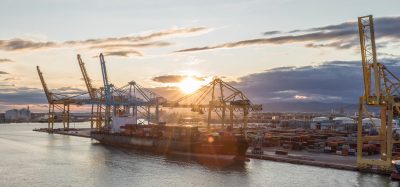Expert View: Re-imagining rail in the North, by Tim Danvers
Posted: 3 September 2020 | Tim Danvers | No comments yet
Despite COVID-19 hugely impacting the rail sector, Tim Danvers, Business Development Manager at Atkins, writes that transforming rail in the North of England is now more important than ever, and sight must not be lost on delivering projects such as HS2 and Northern Powerhouse Rail which are crucial for securing economic growth and better mobility and opportunities for people in the North.


If we look at our post‑COVID-19 world – where, despite lockdown restrictions easing, people are still staying home and those that aren’t are still uncertain about public transport – we’d be right to question the need for continued investment in Northern rail. The business case for ‘levelling up’ fails if we look at it in isolation or in a COVID-19 bubble.
COVID-19 has become the ‘elephant in the room’; we can’t ignore it, but neither should we let it alter our ambitions. We are in danger of responding to the current situation without considering the future. We are in danger of losing sight of what we intended to do – create better mobility and opportunity for people in the North.
If anything, COVID-19 has made issues like economic growth and the skills agenda even more important for the North.
COVID-19 has become the ‘elephant in the room’; we can’t ignore it, but neither should we let it alter our ambitions.
We need to have faith now more than ever that we are doing the right thing by investing in big plays like HS2 and Northern Powerhouse Rail (NPR). The easy thing to do would be to put it on hold to save money now. The more difficult thing is to use this as an opportunity to re-assess and re-imagine.
This is a time where we can reset and look at the true value of the railway in a new light.
First, we need to re-think how we harmonise rail within the overall transportation system. Originally, we looked at new stations in the North as iconic, destination stations – in a post‑COVID-19 world, we need to be focusing more on how we connect those stations to other modes of transport, particularly those that reduce the number of cars on the road. It will be good connectivity that makes our stations, not good retail.
Second, the business case for HS2 and NPR is often misunderstood as being about moving people. It’s actually about movement and connectivity full-stop, whether that’s people or goods. Freight needs to be a part of the argument now, especially in a post-Brexit and net-zero world. Moving goods is just as important as moving people. In current times, where online shopping has never been more prevalent, freight could play an even larger role in moving parcels in a more efficient and environmentally-friendly way. HS2 and NPR will release capacity – it is up to us to use that additional capacity in a wise way.
I truly believe the railway has the power to create big waves and seismic shifts in how, and how well, we live our lives.
Finally, and perhaps most importantly, we need to bring our attention back to people. People in the North need to feel a benefit of our investment in HS2 and NPR. Whether it’s education, jobs, upskilling opportunities or a better standard of life – we can’t just tell people there will be a benefit, they need to actually feel it. Our job is to signpost how these rail investments impact lives; not preaching but demonstrating how, for example, HS2 has already impacted improving skills and jobs in the North, as well as the diversity of our workforce.
I truly believe the railway has the power to create big waves and seismic shifts in how, and how well, we live our lives. It is up to us now to re-think why we are doing HS2 and NPR and ‘own’ it. To think about the value rail brings in the ‘new normal’ and how we create better experiences, better lives and better jobs for people along the way.


Issue
Related topics
Coronavirus/COVID-19, High Speed Two (HS2), Infrastructure Developments, Operational Performance, Passenger Experience/Satisfaction, Route Development








